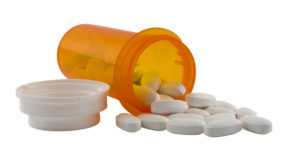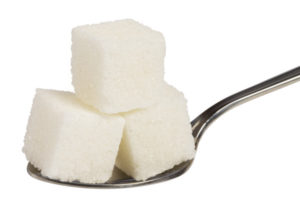 The bacteria Fusobacterium nucleatum is prevalent in periodontal disease (gum disease), but also in some chronic diseases and cancers, such as colorectal cancer. The bacteria F. nucleatum is normally found in the mouth (oral) microbiome, and its numbers increase as periodontal disease inflammation increases.
The bacteria Fusobacterium nucleatum is prevalent in periodontal disease (gum disease), but also in some chronic diseases and cancers, such as colorectal cancer. The bacteria F. nucleatum is normally found in the mouth (oral) microbiome, and its numbers increase as periodontal disease inflammation increases.
It is thought that sometimes the bacteria leaves the mouth and travels to other parts of the body, where it can promote cancer and other diseases.
A recent study found that the antibiotic FP 100 (Hygromycin A) totally eliminates the F. nucleatum bacteria in the mouth, and without causing harm to the mouth microbiome or gut microbiome. This is because it is a narrow spectrum antibiotic - only targets the harmful bacteria, and not all (both good and harmful) bacteria. While the study was only done in mice, this is promising and welcome news.
Eliminating the harmful bacteria in the mouth would potentially prevent some chronic diseases and cancers. Now we need further studies to see if this finding holds up in humans.
From Medical Xpress: First narrow-spectrum antibiotic successfully eliminates Fusobacterium nucleatum, a gum disease pathogen
In a study published in the Journal of Oral Microbiology, ADA Forsyth scientists found that FP 100 (Hygromycin A), a first-in-class, small molecule, narrow-spectrum antibiotic, successfully eradicates Fusobacterium nucleatum without harming the oral or gut microbiomes. ...continue reading "A Promising Antibiotic For Gum Disease"

 The province of New Brunswick in Canada is home to a mysterious
The province of New Brunswick in Canada is home to a mysterious 


 Summer 2024 was the hottest summer on record, and this is following last summer (June through August) - which was the hottest summer globally up to that point. As you can see, the bar keeps rising.
Summer 2024 was the hottest summer on record, and this is following last summer (June through August) - which was the hottest summer globally up to that point. As you can see, the bar keeps rising. One message keeps being supported by research: Eat a diet rich in fruits, vegetables, seeds, nuts, whole grains, legumes, and olive oil. A reason is because this diet is anti-inflammatory. And it turns out that inflammation is at the root of many diseases, including heart disease. And dementia.
One message keeps being supported by research: Eat a diet rich in fruits, vegetables, seeds, nuts, whole grains, legumes, and olive oil. A reason is because this diet is anti-inflammatory. And it turns out that inflammation is at the root of many diseases, including heart disease. And dementia. A diet rich in a variety of healthy foods (fruits, vegetables, whole grains, seeds, nuts, legumes) is important because of all the micronutrients it provides. For example, magnesium. A recent
A diet rich in a variety of healthy foods (fruits, vegetables, whole grains, seeds, nuts, legumes) is important because of all the micronutrients it provides. For example, magnesium. A recent  The artificial sweetener erythritol is added to many foods. However, this sugar substitute (which is often blended with stevia) may cause health problems . A recent small
The artificial sweetener erythritol is added to many foods. However, this sugar substitute (which is often blended with stevia) may cause health problems . A recent small  Dogs and their ability to detect diseases through their smelling abilities could be important in efforts to control the spread of the prion disease called chronic wasting disease (CWD). Different diseases, including CWD, have characteristic odors or scents.
Dogs and their ability to detect diseases through their smelling abilities could be important in efforts to control the spread of the prion disease called chronic wasting disease (CWD). Different diseases, including CWD, have characteristic odors or scents. A recent
A recent